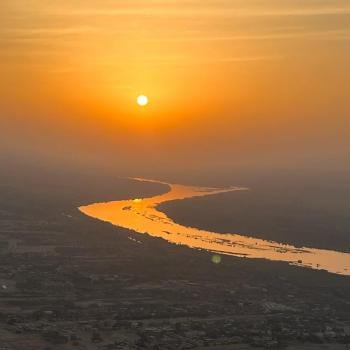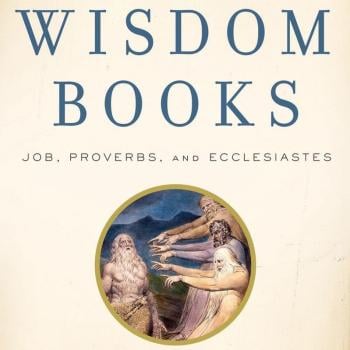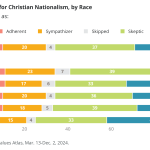Ridley Scott is known for films on a epic scale— think Gladiator, Kingdom of Heaven, Prometheus, Robin Hood or if you like sci fi, Blade Runner. Exodus: Gods and Kings is of that ilk. He out Cecil B.Demille’s Cecil himself. Suddenly, the Bible has become popular fodder for films again (see the recent re-do of the Noah story) and here Scott tries his hand at such classic material. Of course the danger in doing that is: 1) its been done a good deal before; and 2) when you’re dealing with Scripture, any time you take any liberties or creative license at all, you open yourself up to a barrage of critique. If we were to have a sliding scale from ‘literal reproduction of the Biblical story’ to ‘paraphrase of the story’ to ‘midrash done on the story’ it’s somewhere between the second and third of these approaches. And at two hours and twenty-two minutes there is plenty of time to elaborate and get creative.
Let’s talk the basics first— the story is set in the period when most Biblical scholars think it likely occurred— during the reign of Rameses II, the most famous of all the ancient Pharaohs. Thus the movie starts in 1300 B.C. and we work our way to 1290 which is when the Exodus event is often dated, or thereabouts. Second, Scott decides to give us more back story than the Bible actually does, so we hear more about Moses and Rameses growing up together, fighting together, protecting one another etc. This is effective story telling, and in general if you were judging the movie just on the criteria of whether the story telling is effective, this movie, while by no means a classic, has a good story line. Anytime you start with the pyramids, sprinkle in the plagues and finish with a mountain top experience and the ten commandments, you’ve done something. The plagues are especially interesting— who knew that it was hungry crocodiles that turned the Nile red with blood? Scott goes for the theory that there is a reason for the sequence of the plagues– i.e. bloody Nile leads to leaping frogs, leaving their habitat which leads to dead frogs, which leads to flies which leads to disease, including boils, and then we throw in some locusts and hail for good measure. Another basic element in the story is that it is correctly set in Memphis, near Sakkara where the first pyramids were built, although the aerial shots of the city make it look like Luxor/Thebes. The CG is good, but not over done thankfully, at least until the Red Sea crossing. Still, full marks for an attempt at verisimilitude with recreating the look of Egypt in that period, from costumes, to buildings, to hieroglyphics to hairstyles etc. Visually, the film is enjoyable to watch, and I saw it in 3D, which once again, is not necessary and does not add much to this particular film. Nice, but not necessary. Of course the really crucial question is— What about Moses, played by a Christian no less, Christian Bale that is??
Well the portrayal of Moses is a good news bad news thing. On the one hand Bale is a good actor and he plays his part well, but he’s only as good as his lines. This reminds me of the classic line from Who Shot Roger Rabbit where the buxom blonde says to Roger ‘I’m not really bad, I’m just drawn that way’. Moses in this movie does not believe in God for a large portion of the movie, and when finally he does, he spends much of his time disagreeing with and arguing with God. This is overdone, to say the least. This is reminiscent of the ‘Noah loses his mind scenes’ near the end of the Noah movie. Here, you wish Scott had stuck to the Biblical portrayal more, rather than less. Joel Edgerton as Pharaoh is good as well, and there is less to object to about his portrayal, except the notion that Moses was more macho than him as a warrior and leader. Everything we know about Rameses suggests the opposite in regard to his macho quotient.
The question one should ask is where are liberties taken that are truly irritating: 1) the portrayal of either the angel of the Lord or God as an annoying boy with a British accent is beyond the pale, and beyond belief. Even a boy from South Shields near Newcastle upon Tyne knows better than that (and that’s where Scott is from) 2) the Biblical story is adamant that the Hebrews crossed the Red Sea on dry ground, and no, Moses did not swim to shore; 3) the cause of Moses fleeing Egypt is not made as clear as one could want in the film, and it is at variance with the Biblical story. 4) the burning bush story has a bizarre twist– picture Moses buried in a sea of mud while looking up at a burning bush; 5) Moses’ argument with God or the angel/boy about why God had left his people in exile for hundreds of years stretches credulity, as well as the Biblical script.
On the other hand, the telling of the love story between Moses and Zipporah is well done, and a nice relief from slave drivers, fighting, and plagues. There are as well other likable characters, for instance Ben Kingsley as Nun, the father of Joshua, is well done. The portrayal of the brutality of slavery when it came to the building of Pharaoh’s monuments comes across loud and clear, again and again, which is an important thing to emphasize in the film.
Overall, I’d give this film about a B-. It has some effective scenes, and some good acting, and the visuals are good. The fighting is not overdone, and the plagues are about right, though the final wall of water scenes are over the top. If the film had to be this long, it should have had more Biblical pith to it, and less imaginative filler and back story. While this is a film you can take your older children to, I would say lets wait and see what other choices there are this Christmas. The irony is, it looks like, with a 45 minute battle scene, somehow the Hobbit is going to out punch Exodus for violence quotient, at the end of the day. I’ll bet Tolkien would be surprised.















